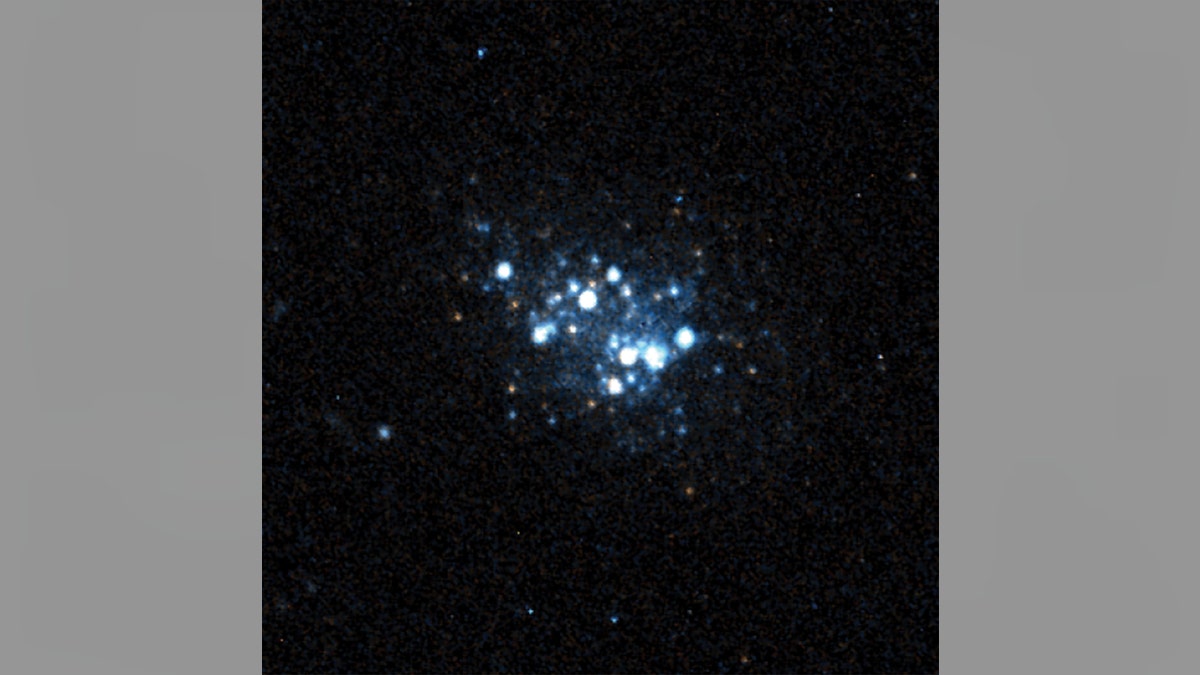
(Indiana University Bloomington)
A team of scientists at Indiana University, Bloomington, looked to the skies and discovered a blue “dwarf galaxy” in Leo Minor containing the lowest level of metals ever observed in a celestial body. The finding also provides new information about the Big Bang.
Officially, the galaxy is named AGC 198691, but its friends call it “Leoncino,” or “Little Lion,” in honor of its constellation location and Italian-born radio astronomer, Riccardo Giovanelli, who led the group that identified the galaxy.
Related: Alien megastructure? Dimming star may have less exotic explanation
Leoncino is located 30 million light years from Earth. The galaxy has an estimated 29 percent less metal abundance than another galaxy identified in 2005, which was previously thought to be the lowest metal galaxy.
The team wrote on its website that low-metal galaxies contain properties that are similar to those present at the start of the universe.
The currently accepted theory about how the universe began provides, “clear predictions about the amount of helium and hydrogen present during the Big Bang, and the ratio of these atoms in metal-poor galaxies provides a direct test of the model,” wrote the team.
Professor John J. Salzer, an author on the study, said, "Finding the most metal-poor galaxy ever is exciting since it could help contribute to a quantitative test of the Big Bang. There are relatively few ways to explore conditions at the birth of the universe, but low-metal galaxies are among the most promising."
Related: Three million photos and counting: Space station crew takes milestone snapshots
Scientists estimate elements in a galaxy using spectroscopic observations to capture light waves that the systems emit. Astronomers are able to view the light in a manner similar to the rainbow created by a prism, according to the website.
Salzer said the team will continue to study the galaxy using other telescopes, including the Hubble Space Telescope. "Low-metal-abundance galaxies are extremely rare, so we want to learn everything we can."




















